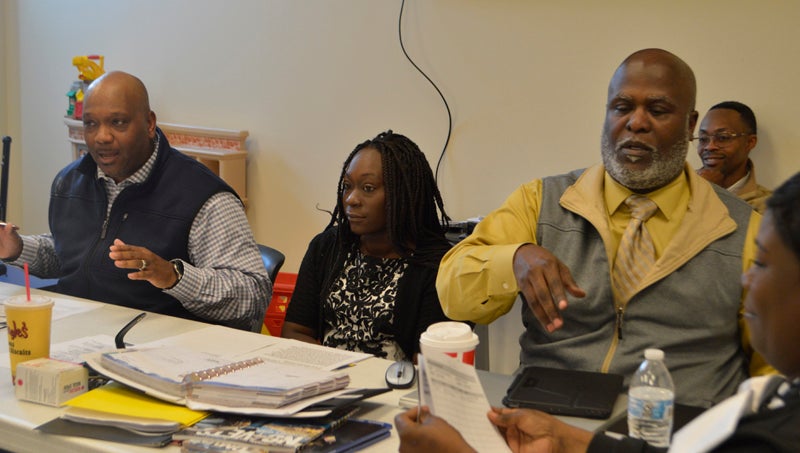Criminal justice reform bills go to governor
Published 5:43 pm Friday, June 19, 2020
|
Getting your Trinity Audio player ready...
|
When Washington resident Jeron Randall came home from an 18-year prison term, things weren’t easy for him. Having resolved to do the right thing and turn away from crime, he hit roadblocks on finding employment — a key factor in accomplishing those goals.
“Coming out and trying to get a second chance in starting over again, it was tough when I first got home,” Randall said. “If I hadn’t had a trade, it would have been tough to get back into society and continue to try and do the right thing.”
Randall now serves as a member of the Beaufort County Reentry Council, an organization committed to helping local people find success after incarceration. He specifically works with the group’s Open Arms program, an outreach for people still serving sentences or who have been recently released.

MEETING WITH PURPOSE: The Beaufort County Rentry Council is a new endeavor that started this spring with the goal of helping formerly incarcerated people come back into society. President Barbara Gaskins (center) has been leading figures in that effort. (Matt Debnam/Daily News)
This week, two piece of bipartisan legislation that passed the North Carolina General Assembly could help some people accused of low-level crimes find second chances in society.
House Bill 511, the North Carolina First Step Act, and Senate Bill 562, the Second Chance Act, were both presented to North Carolina Gov. Roy Cooper this week, and were awaiting his signature on Friday.
The First Step Act provides leeway for courts in applying mandatory sentences for drug trafficking charges, allowing judges to modify sentences and fines if the person meets certain criteria. In order for that to happen, the defendant has to assist the court by providing assistance in identifying others involved in the drug trade. Sentencing for other drug-related offenses can also be modified if the person accepts responsibility and completes a treatment program.
The Second Chance Act, meanwhile, reforms how criminal offenses can be expunged from a person’s record. The bill makes it easier for minors to have misdemeanors or certain felonies taken off of their records after they complete a sentence. It also gives adults and district attorneys more leeway to petition the court to expunge non-violent criminal convictions. Finally, after Dec. 1, 2021, all charges that are dismissed, or where the defendant is found not guilty, will be automatically expunged from their record.
Both bills passed with unanimous support in the N.C. House and N.C. Senate.
“A lot of kids do dumb stuff,” said N.C. Rep. Keith Kidwell. “I made mistakes as a kid, you made mistakes as a kid, and fortunately it didn’t mess up either of our lives. I hate to see a young person who has a lot of potential just have a bad day and end up with some baggage that’s going to go with them the rest of their lives.”
District Attorney Seth Edwards currently serves on a committee spearheaded by the National Association of Prosecution Attorneys that focuses on the collateral consequences of minor convictions on employment, school loans, driving privileges and other areas. For the most part, he sees the Second Chance Act as a step in the right direction.
“The Second Chance Act expands procedures already in place, but streamlines the procedure and shortens the period of time a person must wait before filing the petition for the expunction,” Edwards said. “I want to emphasize this is for low-level crimes only. In my experience, our court system affords second chances (and third, and fourth, and so on) already, but this legislation primarily helps the person who made one mistake prior to age 18.”
Barbara Gaskins, who serves as president of the Beaufort County Reentry Council, says these state-level reforms offer just the kind of second chances her organization wants to see for people in Beaufort County.
“This is a huge step,” Gaskins said. “People will really get that fresh start that they need so much. This is now their chance to receive that.”






